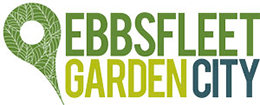Kent County council as part of its wider strategy to cut carbon emissions, has committed to upgrade the Fastrack fleet with a new line of electric vehicles and infrastructure. This replacement will be accompanied by an upgrade to the infrastructure of our depots to include operational chargers and substations to allow for the buses to rapidly charge while laying over and at other strategic areas such as the Gravesend Bus Hub. Kent County Council will also look to expand this electric network into Dover with the finalisation of the Dover Fastrack project expected to be completed in Spring 2024.
 These changes are being made with Kent’s wider environmental strategy in mind. The county has committed to the wider UK strategy of achieving net zero emissions by 2050 and the Electric Fastrack Services will contribute to this by removing the aging diesel vehicles from the road. Furthermore, Kent’s urban areas have struggled with poor air quality. Therefore, the introduction of these vehicles (along with other measures such as plan Bee) will help to cut emissions in these areas.
These changes are being made with Kent’s wider environmental strategy in mind. The county has committed to the wider UK strategy of achieving net zero emissions by 2050 and the Electric Fastrack Services will contribute to this by removing the aging diesel vehicles from the road. Furthermore, Kent’s urban areas have struggled with poor air quality. Therefore, the introduction of these vehicles (along with other measures such as plan Bee) will help to cut emissions in these areas.
The Thameside contract for these vehicles is has been completed with the award going to VEV; a company which has dealt with electrification projects across the globe. KCC has full confidence that our partnership with VEV will be highly advantageous for both the council and the wider public. The instillation of the charging infrastructure will take place between spring and autumn 2024; allowing the new vehicles to operate in the Thameside area for the end of 2024. These charges will be installed in numerous places across the Fastrack Network, including the Gravesend Bus hub, Acacia Hall in Dartford, and Dover Priory Station.
Along with the instillation of the chargers will be accompanied by a new fleet of electric vehicles designed and manufactured by our partners in Irizar. These buses will take advantage of the new fast-charging infrastructure which will enable buses to remain on route for a much longer period without the need for refuelling












